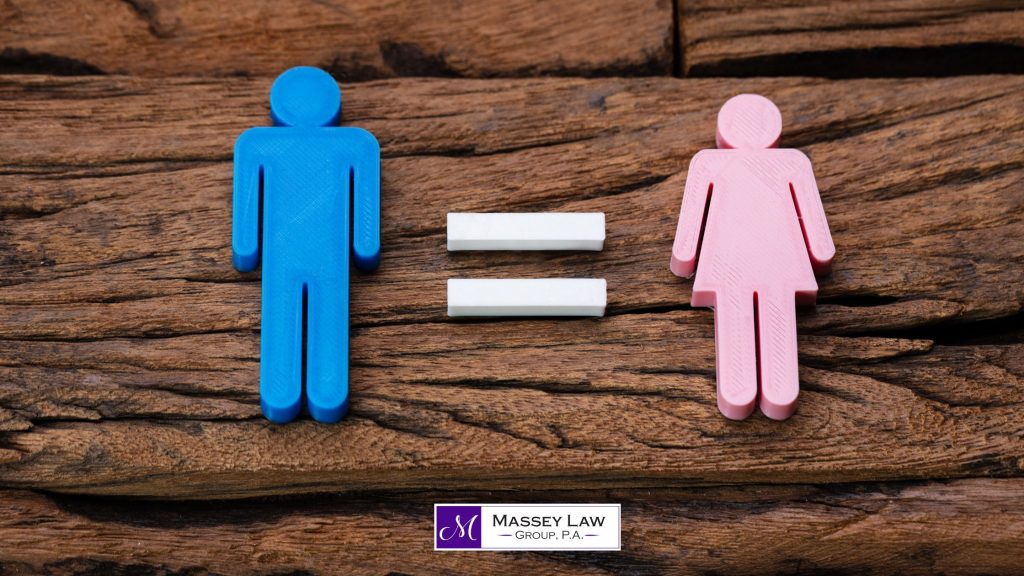Posted on January 19, 2023, by Starlett Massey

What happened in 2022 as the workforce (and workplace) continued to shift? And how has it moved the needle on workplace equality for women?
Much has changed since the pandemic’s start — from how companies do business to where employees work and how work-life balance is defined. The shift has been seismic, and the pandemic was a catalyst that accelerated the need for gender equality and equity in the workplace.
Equality (and equity — we’ll get to that in a minute) gaps for women have long existed. But navigating the pandemic and threat of a recession have pressurized the situation. Like carbon under pressure, for some women diamond opportunities were born, such as unique market niche demand, working from home for global companies, and entrepreneurship doors opening.
For example, approximately 42% of small businesses in the U.S. are now owned by women, with women of color owning approximately 47% of female-owned businesses. Therefore, more women are forging and blazing their own paths, building their own successes, and carving out their own space distanced from workplace inequalities.
On the other hand, most women continue to face obstacles navigating the job market. Pay gaps, discrimination, and lack of work-life balance continue. Additionally, the impact of pandemic-related hardships, such as virtual schooling, and women being the primary caregivers for children and elderly family, have lingered and negatively impacted women and our economy. Since February 2020, the U.S. labor force has lost over one million women.
How Do Equity and Equality Differ?
Equity and equality sound similar, and they are sometimes confused as being the same. Equality means treating everyone the same and giving them the same opportunities and resources. But how do you treat people equally when they have different circumstances? Equity is making sure that everyone has access to what they need to be successful. It means meeting employees where they are and allocating opportunities and resources to create equal outcomes fairly and equitably.
For example, women face unique differences in the workplace. For starters, we make less — 84 cents for every dollar our male counterparts make, and we are promoted less frequently. We face more discrimination and harassment at work. And we face greater child and elder care challenges — 75% of families’ caregivers are women. Companies that want to recruit and retain women in their workforce consider these factors in creating equality and equity practices:
Workplace Buzzwords Past and Future
The “Great Resignation,” which began in early 2021, was when many workers voluntarily left their jobs. Reasons included wages, cost of living, hostile work environments, lack of opportunity for advancement, inflexible remote work policies, and long-term job dissatisfaction. In 2022, it was followed by the return to office “RTO.”
It’s no surprise that after RTO, which was not smooth for many companies and is still in flux for others, came “Quiet Quitting.” It’s a term for people unhappy in their job who, instead of leaving, do the minimum required or set tighter boundaries to create work-life balance. However, for women, who already face challenges accessing fair pay, promotions, and raises, quiet quitting isn’t an ideal choice as it creates additional obstacles to career growth and advancement.
Looking to 2023, what business and workplace buzzwords would we like to be talking about a year from now? We propose: Employment equality equity “EEE.” Women’s boom “WB.” Equality upswing “EU.” These would mean a brighter future for women and everybody.
Why Now? Equality and Equity in 2023
According to the World Economic Forum, closing the gender gap for women could help economies to rebuild, restructure, and get out of crisis. Economists talking with CBS News in October of 2021 predicted the same when they warned, “the U.S. economy may not regain its footing until women fully return to the job market, especially given that female workers held most of the nation’s jobs before the pandemic.” Workplace equality and equity are also essential to creativity and productivity.
In a 2020 study, McKinsey & Company found that more diverse companies “outperform less diverse peers on profitability.” For example, when it comes to companies with more than 30 percent women executives, they were “more likely to outperform companies where this percentage ranged from 10 to 30, and … a substantial differential likelihood of outperformance—48 percent—separates the most from the least gender-diverse companies.”
In short, the gender gap is holding us all back. Closing it will help our economy make up pandemic losses and achieve a robust and sustainable recovery. Companies that listen, act, and create policies that truly create equity and equality will attract and retain employees and drive long-term positive change.
Massey Law Group is honored to be a woman-owned business. We proudly champion women’s equality and equity in our initiatives and community.